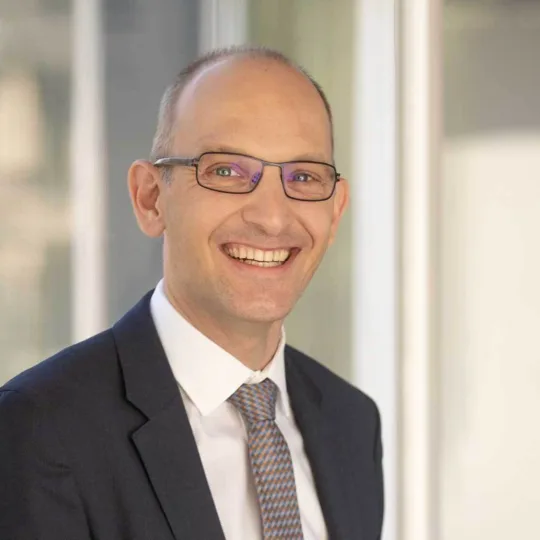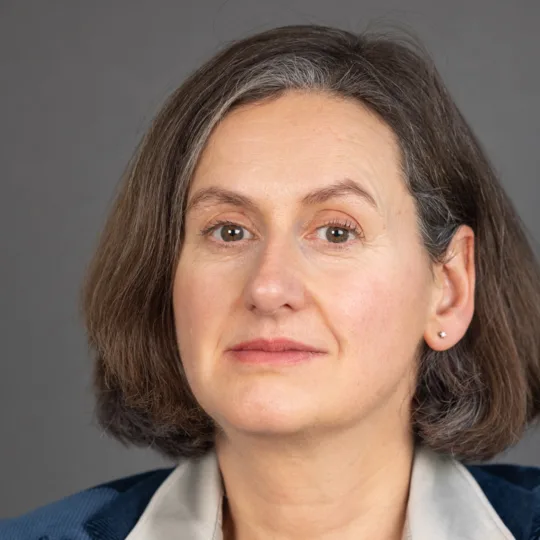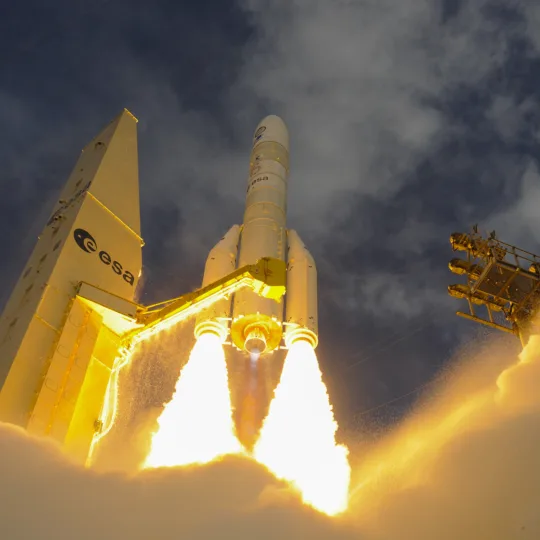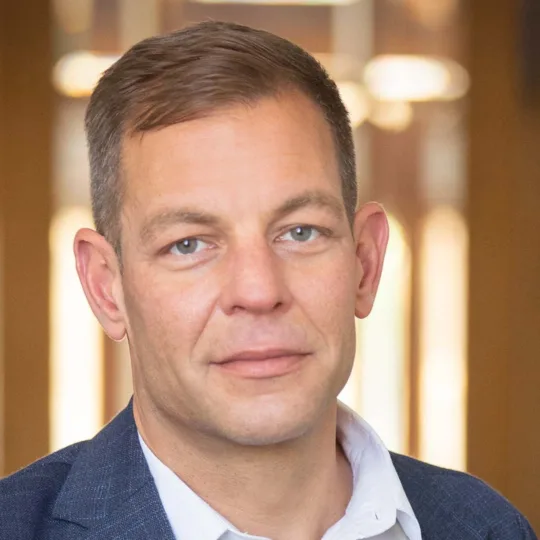«Commercialisation is also an opportunity for the space sector in Switzerland»
Renato Krpoun is Head of the Swiss Space Office at SERI and has been Chairperson of the Council of the European Space Agency (ESA) at delegate level since 1 July 2023. In this interview, Renato Krpoun explains the key pillars of the Federal Council's space policy and provides insight into current developments in the space sector.
The Federal Council adopted its 2023 Space Policy last April. What will change for the Swiss space sector?
Our evaluation of the 2008 Swiss space policy showed that no real change of direction is necessary. Switzerland has had many success stories in space that we can build on. At the same time, the Federal Council has ensured that Switzerland doesn’t get left behind in the midst of the many changes currently taking place globally.
In what way are these changes visible?
In the distribution of responsibilities between the public and private sectors, for example. In procurement, the public sector is asking the private sector to take on more of the risks and a greater share of accountability in return for which the private sector can benefit from more entrepreneurial freedom. The companies are thus enabled to sell the services which are needed by the government, not only to private actors, but also to foreign governments. This is what ‘commercialisation’ is now to be understood in the space sector. ESA has identified this as a serious risk because the European space sector could be left behind due to the rapid increase in government investment overseas.

Renato Krpoun studied and obtained his PhD at EPFL in Lausanne and obtained an MBA from the University of St. Gallen. Professionally, he has held various positions, mostly in the space industry, in Switzerland, the USA and Brazil. He has been Head of the Swiss Space Office at SERI since 2016. Renato Krpoun has represented Switzerland on the ESA Council at delegate level for several years. As Chairman of ESA Council, one of his main tasks is to lead the Council's work and prepare its decisions in close cooperation with the Member States and ESA Director General Josef Aschbacher. He is supported by Miguel Belló Mora (Spain) and Frank Monteny (Belgium) as Vice-Chairs. Photo: Monique Wittwer
Where are the opportunities for Switzerland?
With new technologies, for example quantum technology, new markets will emerge in the fields of secure communication or cryptography. There’s also great potential for the life sciences. For example, new medicines could be tested and developed under special conditions in space, which can give Switzerland a key competitive advantage. SERI is helping companies tap into the potential of the space sector either by opening up new business areas or expanding existing ones. Commercialisation is therefore also an opportunity for the space sector in Switzerland.
How is Switzerland's space policy linked to that of other states?
Intensive cooperation with our partners in and outside of Europe remains a key objective for the Federal Council, and ESA is our main instrument for implementing research and development in space. Switzerland is a founding member of ESA and is very well integrated into its space programme. It also participates in parts of the EU's EGNOS/Galileo space programme and in the Earth Observation component of Copernicus.
Many states have a national space policy, each with its own goals and ambitions. In general, we see that greater strategic importance is being given to outer space and space activities, which is why some states also have goals in the area of security and defence.
How is Switzerland's space policy linked to that of the EU?
The EU shapes its space policy in consultation with its Member States, many of which are also members of ESA. Its aim is to foster scientific and technical progress, industrial competitiveness and the implementation of its policies. The EU's flagship programmes such as Galileo, Copernicus and, in the future, IRIS2, have been developed by ESA. By participating in ESA programmes, Switzerland facilitates the participation of Swiss researchers and industry in their development.
«Switzerland is a founding member of ESA and is very well integrated into its space programme.»
How will the competitiveness of the Swiss space sector be boosted by Switzerland’s new space policy?
Unlike other countries, Switzerland has a space policy that works in many areas from the ground up. As we don’t have a state space programme, Swiss researchers and industry contribute where they are strongest, so it’s essential that they network with each in order to succeed. ESA offers various programmes that are intended to facilitate the development of technologies and products in the space sector, while SERI supports further projects that enable the transfer of knowledge and technology such as via MARVIS. With this instrument, the Swiss National Science Foundation supports multidisciplinary projects in space research.
However, government action is also needed at a higher level. Switzerland's ongoing commitment to international cooperation in research and innovation has enabled Swiss researchers and industry to develop and acquire new competences. Of course, there are also top-down areas where the state must play an active role in order to maintain access to space and space-based services for our society. Here I’m talking specifically about launchers or critical infrastructure.
And finally, the national space law that we’re currently working on should also reinforce Switzerland’s position as an attractive business location. With this new legislation, satellite operators from Switzerland will benefit from the fact that there is a clear legal framework in Switzerland for their space activities.
Marco Sieber is following in the footsteps of Swiss astronaut Claude Nicollier, so will a Swiss soon be flying to the moon?
We can't say at the moment. Marco Sieber is currently undergoing his training at ESA and will most probably fly to the International Space Station ISS first. The fact that he was selected from 22,500 applicants makes me not only personally very happy, but also very happy for Switzerland. Hopefully, Marco Sieber will inspire the younger generation in particular to take an interest in scientific topics and the space sector. The ESA Earth Exploration Programme’s manned flights are of great interest for science because they make it possible for astronauts to expand our collective knowledge. That’s why the Federal Council has confirmed in its Space Policy 2023 that Switzerland will continue to take part in robotic and manned exploration.
«Unlike other countries, Switzerland has a space policy that works in many areas from the ground up.»
On 1 July 2023, you became the ESA Council Chair at delegate level for the next two years. What are you most looking forward to?
The coming years will be important for ESA and Europe. Josef Aschbacher, ESA’s Director General, has presented ambitious goals which ministers of the ESA Member States committed to at a meeting in November 2022, with the required budget of nearly EUR 17 billion for implementation. At the same time, there are major EU projects in the pipeline that ESA will develop. As a Swiss national, I can build bridges and help take the European space sector to a new level. What I’m very pleased about personally is that Daniel Neuenschwander, who heads ESA’s exploration programme, is also a Swiss national. And with Marco Sieber, ESA now has a Swiss astronaut again, so we can look forward to exciting projects.
Contact
Author



